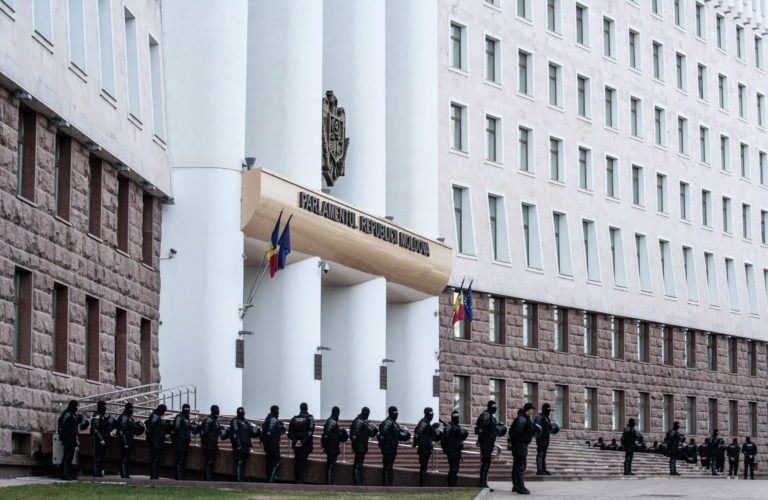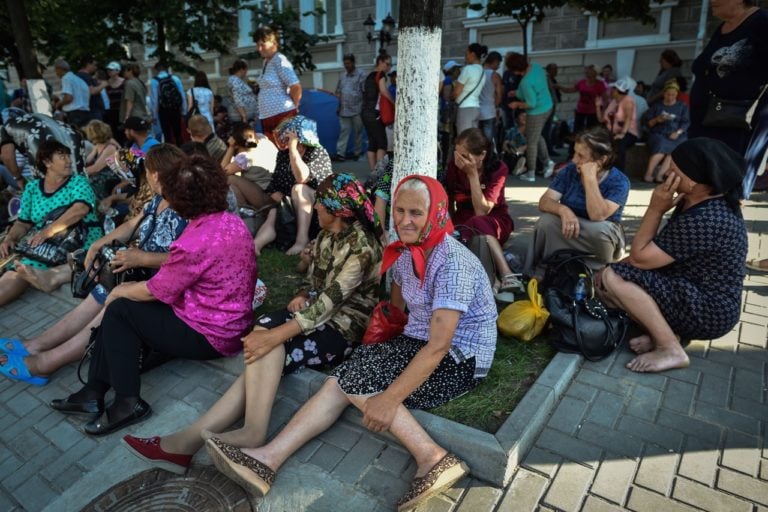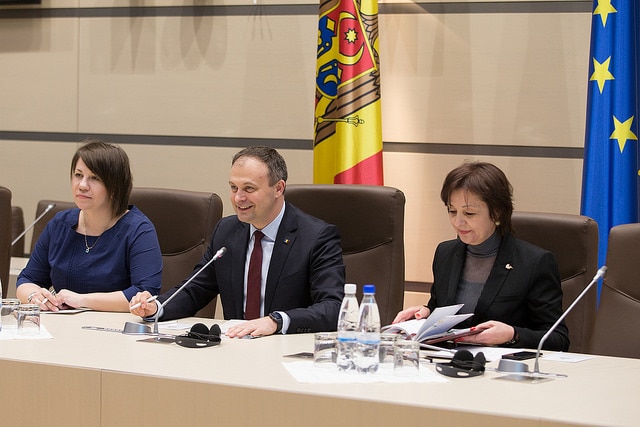(IJC/IFEX) – The following is a 25 February 2009 IJC press release: Results on Monitoring of Media Coverage of the 2009 Parliamentary Elections Campaign (5 – 18 February 2009) The Independent Journalism Center (IJC) and the Association of Independent Press (API) have released, within the Civic Coalition for Free and Fair Elections – Coalition 2009, […]
(IJC/IFEX) – The following is a 25 February 2009 IJC press release:
Results on Monitoring of Media Coverage of the 2009 Parliamentary Elections
Campaign (5 – 18 February 2009)
The Independent Journalism Center (IJC) and the Association of Independent Press (API) have released, within the Civic Coalition for Free and Fair Elections – Coalition 2009, the results of the first monitoring report (5 – 18 February 2009) assessing the media coverage of the campaign for parliamentary elections in Moldova.
General Conclusions:
During the first two weeks of the election campaign, the monitored media covered actively the events that tackled, either directly or indirectly, the election campaign or the election candidates. Overall, the 24 monitored media broadcast or published 3,537 relevant materials.
The results of the monitoring point to two different positions of the broadcast media in covering the election campaign. On the one hand, the public broadcasters Moldova 1 and Radio Moldova, as well as the private broadcasters NIT and Antena C, directly favor the ruling party and disfavor the opposition parties. Moldova 1 and Radio Moldova broadcast a great deal of news about initiatives of the ruling party, mainly the election initiatives. It is this kind of news that headed almost all monitored news blocks.
On the other hand, PRO TV, EU TV, TV 7 and Vocea Basarabiei are trying to objectively cover the campaign, bearing in mind the highlights of the events and trying not to leave out any information on the activity of the political structures. Vocea Basarabiei, in particular, is more critical towards the Communist Party of Moldova (PCRM); however, it did not ignore the events that might favor this political party. EU TV broadcasts more news that favor the ruling party.
The print media as well as the press agencies and the online publications monitored reported on the election campaign from different perspectives based on the opinions of their editors. Some media institutions favored a particular party by presenting it only in a positive context in news items and opinion articles. Thus Moldova Suverana, Nezavisimaia Moldova and
http://www.omg.md directly promoted PCRM, at other parties’ expense, especially liberal ones. Similarly, the state press agency Moldpres presented PCRM in a positive context and either neglected or indirectly disfavored opposition parties. Flux also criticized opposition parties and favored the PPCD. Flux seldom criticized the PCRM, and Moldova Suverana and Nezavisimaia Moldova did not report negatively on the PPCD. The news in Komsomolskaia Pravda v Moldove directly supported the PCRM and the Social Democratic Party (PSD).
In contrast, other newspapers directly criticized the ruling party and presented opposition parties active in the electoral campaign, including PLDM, AMN and the Liberal Party (PL), in a positive context. Among these newspapers are Timpul de dimineata, Jurnal de Chisinau, Moldavskie vedomosti, Cuvantul (Rezina) and http://www.unimedia.md. Saptamina did not criticize the PCRM. SP criticized the PCRM, but did not favor any other party.
The press agency Infotag strived to maintain balanced coverage and to present all the parties involved in the election campaign equally and to report without exception on all events related to the campaign, usually without interpreting statements or taking them out of context. Realitatea and Vesti Gagauzii did not publish any relevant articles during this monitoring period.
During the monitoring process, educational election materials were seldom published or broadcast, being merely an exception than a rule.


